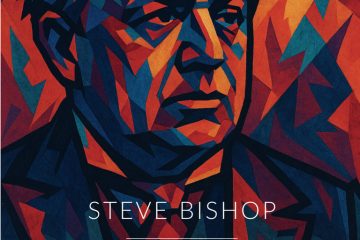Last week my wife, Anne and I watched the film Harriet which is based on the true and very inspiring story of Harriet Tubman.
Harriet was an illiterate, black woman who escaped from slavery and dedicated her life to rescuing many enslaved people as a conductor on the famous Underground Railroad. She was born in 1822 on a plantation in Maryland, not far from the city of Cambridge.
For the first 25 years of her life Harriet experienced the full range of suffering, abuse and misery that dogged the life of an enslaved person. In various interviews with her biographer and friend Sarah Bradford (1818-1912) she described one of her tormentors, a ‘Miss Susan’. After an exhausting day of hard work, Harriet was ordered to sit up all night rocking the cradle of a sick and cantankerous child. If she fell asleep, Miss Susan would whip her harshly on her face and neck; the ensuing scars were plainly visible for the rest of her life.
On another occasion Harriet was present when an enslaved man was recaptured. The foreman asked Harriet to help him tie the escapee up but she refused and as the lad ran away, the overseer hurled a two-pound weight to stop the man. Unfortunately the projectile missed its mark and struck Harriet on the head. Slowly she recovered from the ordeal but the damage inflicted was severe. Harriet would be attacked by sleeping spells that would sometimes seize her, inducing a groggy kind of inertia.
In the autumn of 1849 she started on her journey to freedom. She journeyed by night, carefully following the north star and finally crossed the ‘magic line’ which separated the land of bondage from the land of freedom. Harriet often referred to the Exodus story that presents God’s people as living in the bondage and slavery of Egypt. She told Bradford this:
‘I had crossed the line. I was free…..I said to de Lord, I’m gwine to hole stiddy on to you, an I know you’ll see me through.’
In Philadelphia she worked in various hotels, saving money in order to go back to Maryland and rescue many enslaved friends and family members. This, of course, enraged many powerful slave holders and they offered a reward of $12,000 for anyone who would capture her alive.
This is how she went about her rescue missions. By night she travelled, often on foot, over mountains, through forests, across rivers. This is how she summed it up: “Perils by land, perils by water, perils from enemies, perils among false brethren.” She carried a revolver and would point the loaded gun at the heads of those who resisted her firm, wise leadership. She was tough as well as godly.
Indeed she insisted that God spoke to her in visions, dreams and voices to warn her about impending dangers. Here is a vignette to illustrate this. She was leading two ‘stout men’ in a forest when God told her to stop. The Lord told her to turn left and they soon came to a stream where the water looked deep and dangerous. She asked God for directions and the Lord told her to wade into the water and the stream soon reached her arm-pits.
The stout lads were terrified and refused to follow but very quickly Harriet reached the other side of the stream and the men were thrilled and fully able to continue their journey to eventual freedom. These moments of guidance and deliverance filled Harriet with joy, thanksgiving and confidence that Jesus was truly her faithful guide and friend.
Although Harriet was illiterate she had a good grasp of the Bible. We presume that she heard Scripture read out and quoted in sermons. When she was asked how it was possible for her to return again and again to the ‘land of bondage’ she explained:
“Now look yer! John saw the city, didn’t he? Yes, John saw the city. Well what did he see? He saw twelve gates – three of dose gates was on de north – three of ‘em was on de east – and three of ‘em was on de west – but dere was three of ‘em on de south too; an’ I reckon if dey kill me down there, I’ll git into one of dem gates, don’t you?”
This is very inspiring because she knew the promises that God has revealed in His Word to those who believe in Jesus and she lived faithfully in that true and liberating story.
According to Bradford, Harriet made her last visit to Maryland in 1860. In all she had made some thirteen missions to rescue approximately seventy enslaved people.
In 1861 the civil war began and Harriet threw herself into the Union cause. She worked tirelessly as a nurse, a scout and even as a spy. She was an effective and talented secret agent because she knew the region so well and hiding herself within it was easy for her. She tracked down Confederate military positions and even led raids into the south. In one impressive raid she directed an armed assault on a collection of plantations that liberated 750 enslaved people. Many of her admirers called her ‘General Tubman’ as well as ‘Moses’, echoing the Exodus story.
Harriet spent her final years supporting vulnerable people and campaigning for the just treatment of African-Americans and promoting women’s rights. She died in 1913 and her last words – ‘I go to prepare a place for you’ come from John 14:3.
It is important to consider how different people tell her story. Consider a Ted Talk by Janell Hobson, the Professor of Women’s, Gender and Sexuality Studies at Albany University which has garnered 1.8 million viewings. Hobson tells the story of Harriet without any mention at all of Tubman’s fervent Christian faith. It has been completely edited out. This is a kind of secular indoctrination that very few notice. This should not surprise us because worldviews are always at work when we tell stories. It is impossible to tell Harriet Tubman’s story in a neutral way. We will either ignore God or bring Him into the story.
From a Christian perspective it is vital to understand the deeply Christian motivations that nurtured this tough, courageous, prayerful woman who served God so faithfully in such dangerous and harrowing circumstances.
- UCB Interview with Vicky Gibbens - January 28, 2026
- The Story of Fred Lemon who met Jesus and Two Angels in Prison - November 26, 2025
- The Inspiring Story of Abraham Kuyper (1837-1920) - October 22, 2025



1 Comment
Hugh Grear · November 25, 2024 at 11:29 am
What a wonderful story, well told. I am a priest, and I sometimes feel this is the least of God’s callings. My job is to prepare and equip the Saints for the work of God’s service. I prepare the Saints as best I can, week after week, but it is up to them whether they put it into practise, and by that I mean the kind of work for freedom and justice that Harriet took on. She didn’t use being black, or an escapee, or illiterate, or disabled as an excuse; she just took God at his word, and got on with it.
What a great example!
Comments are closed.